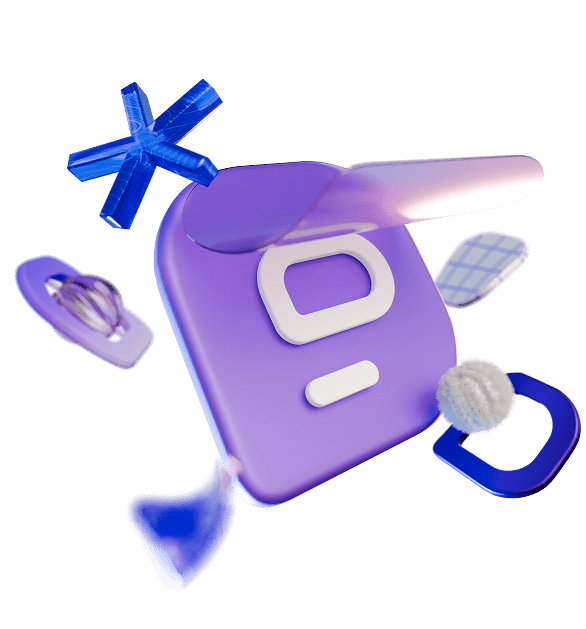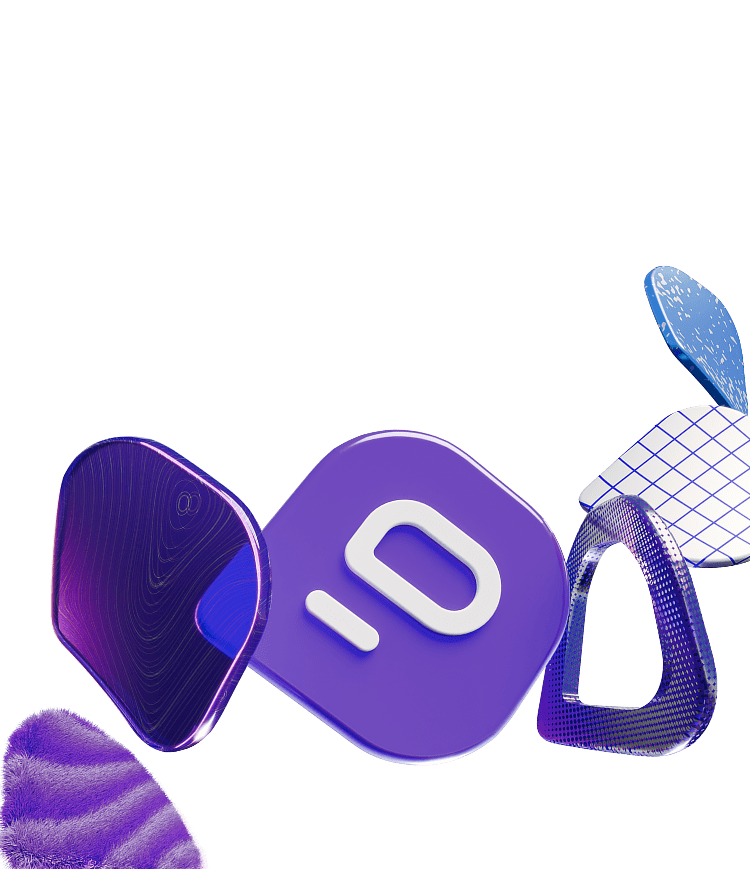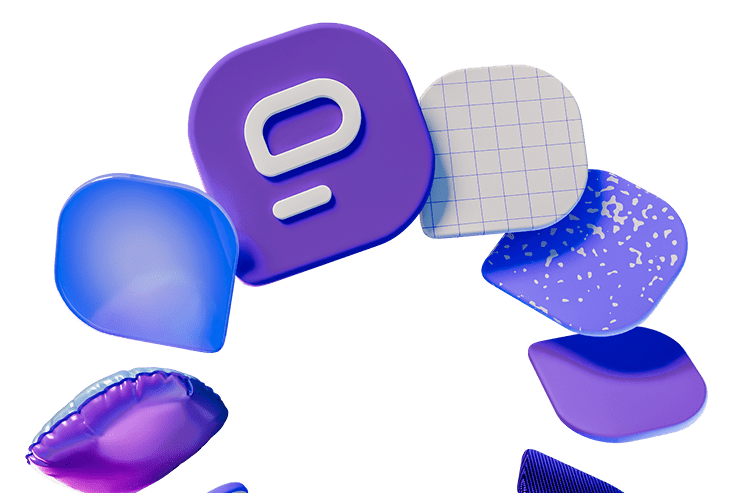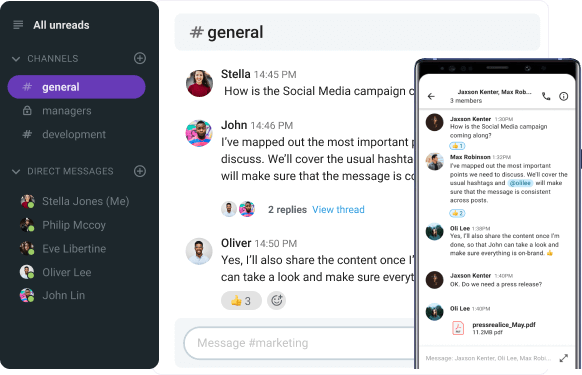In today’s competitive job market, having a top-notch recruitment team is more important than ever.
This especially applies to industries with skill shortages, which impact candidates’ salary expectations.
Although you can enhance your recruiting efforts in many ways, it’s best to start with mastering your interviewing skills and leveling up your job interviews.
To help you achieve that, in this blog post, we’ve got you covered with experts’ opinions and tips on how to conduct effective job interviews and improve candidate experience.
So, let’s start!
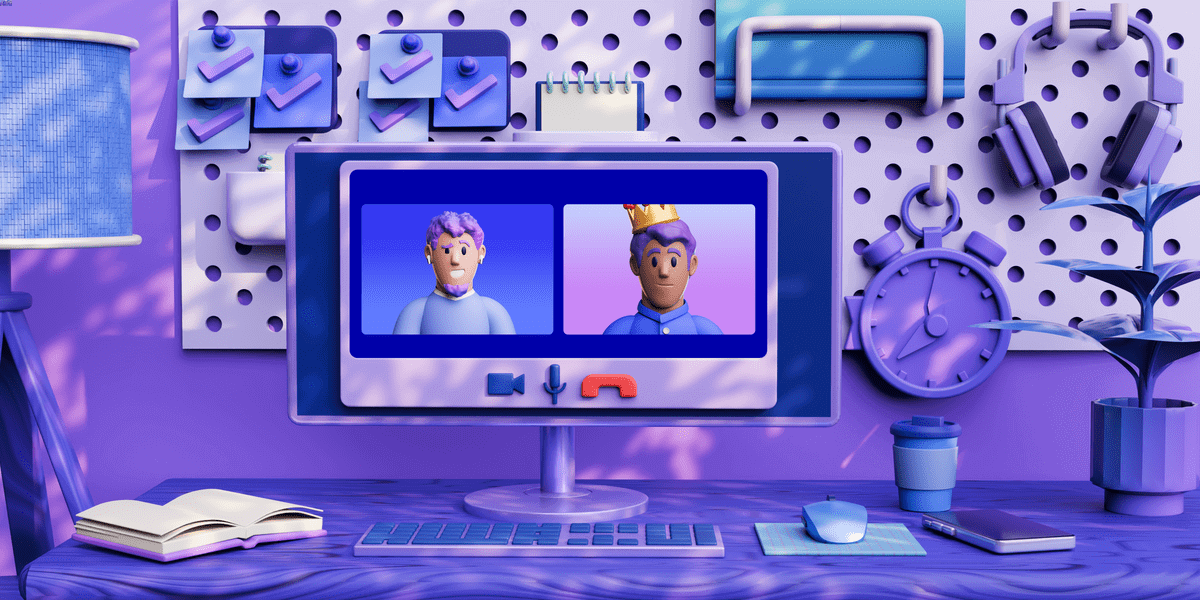
- Job interview is a two-way communication ― not only does a recruiter assess a candidate, but also a candidate assesses whether the company is the right fit for them.
- To build trust and rapport, it’s important to use active listening techniques — e.g. listen carefully and ask follow-up questions.
- Giving candidates an opportunity to ask questions and express their doubts is equally important as asking them the right questions.
- Combine closed-ended and open-ended questions depending on the available time and information you need to get.
- For online interviewing, make sure to choose the right meeting software that helps you enhance the candidate experience.
4 Main stages of a standardized job interview
A standardized (structured) job interview refers to a systematic interviewing approach where a recruiter asks a predefined set of questions in the same order, which helps them make objective comparisons between candidates.
To standardize the interview process, recruiters typically break down an interview into 4 stages:
- Introduction,
- Information gathering,
- Candidates’ questions, and
- Conclusion.
So, let’s learn more about how to move through each of these stages.
Stage #1: Introduction
Recruiters typically start interviews by introducing themselves and other interviewers (if any).
After that, they give a brief overview of the company and provide candidates with more details about the role they’re applying for, which aren’t included in the job post.
According to Christy Morgan, a Human Resources Expert and Career Coach with more than 20 years of experience in international recruitment, the main purpose of the introduction is to set clear expectations regarding the interview structure.

“Instead of jumping right in, first outline the conversation structure so expectations are clear.
For example, the interviewer may explain that they’ll ask several questions first, before sharing more about the organization, then opening the floor to the candidate’s questions.
A clear structure leads to a smoother discussion for both parties.”
Therefore, a strong introduction helps recruiters keep the conversation focused and put the candidate at ease.
Talent Acquisition Specialist for non-technical positions at CAKE.com, Bogdana Vitas Nedeljkovic, agrees that the interview introduction should give more details about the interview flow.

“Once a recruiter introduces themselves, other interviewers, and the company, it’s important to familiarize a candidate with:
- The interview flow,
- Duration, and
- The topics it will cover.”
Stage #2: Information gathering
After a brief introduction, recruiters start a conversation about relevant topics, which helps them warm up the candidate and build rapport.
Our contributor Vitas Nedeljkovic shares how she typically starts the conversation with their candidates.

“After an introduction, I encourage the candidate to briefly introduce themselves and walk me through their resume. This helps me learn more about their work history and their enthusiasm.”
This way, interviewers get deeper insights into the candidate’s background and learn more about their personality and soft skills.
After that, to control the interview direction and gather all important information, recruiters ask predefined questions relevant to the role and culture fit assessment.
A standardized set of questions ensures an effective and objective candidate evaluation.
Conduct effective candidate interviews over Pumble
Stage #3: Candidates’ questions
As a job interview is a two-way process, it’s critical to give candidates the chance to ask questions they may have about the position or the company. This shows that you respect their interest.
Applicants typically ask for additional information about:
- Career advancement opportunities,
- Responsibilities in the role,
- Expected results, etc.
A candidate’s questions may help you assess whether they’re genuinely interested in the role and the company and what’s important to them.
However, if a candidate doesn’t have any questions during the interview, it doesn’t necessarily mean they’re not interested or motivated.
According to Simo Jokic, a Talent Acquisition Specialist for technical positions at CAKE.com, recruiters should encourage a candidate to ask questions during and after the interview.

“If a candidate doesn’t have questions during the interview, it’s important to encourage them to ask follow-up questions later, via email or other communication channels.”
Stage #4: Conclusion
To close out an interview effectively, it’s important to provide the candidate with information about the additional steps in the recruitment process, such as further interviews or tests.
Aside from that, it is crucial to let the candidates know when they can expect to get feedback from you, which makes the waiting time less stressful.
10 Tips on how to conduct an effective job interview
Now that we’ve gone through the most important stages of a job interview, let’s dive into tips on how to conduct an effective interview and enhance the candidate experience.
Tip #1: Prepare in advance
Good preparation is as important as the interview itself for both recruiters and candidates.
In Morgan’s opinion, it’s very important to re-read the applicant’s resume immediately before the interview.

“Re-reading the resume helps you avoid so much wasted time in terms of:
- Asking questions that can be easily explained by their resume (e.g. qualifications),
- Knowing which areas to probe further, and
- Identifying points left unanswered by their resume.”
Talent Acquisition Specialist for technical positions at CAKE.com, Milica Vuletic, adds that interview preparation is more than preparing questions.

“Aside from preparing questions that will help you learn more about the candidate’s competencies and skills, it’s a good idea to compare the candidate’s resume with their LinkedIn profile to check whether there are any gaps.”
Hence, keep in mind that good preparation is essential for conducting an effective and successful interview.
Tip #2: Complete technical check
Jokic adds that proper interview preparation also includes a quick technical check.

“Ensure a stable internet connection and test your camera, microphone, and speakers before each interview session.”
This practice prevents you from unexpected interruptions and problems, which can damage your professional image and prolong the interview process.
Tip #3: Make a positive first impression
In the job interview process, both candidates and recruiters aim to make a positive first impression.
Our contributor Vuletic highlights the importance of the Human Resources department for making a positive first impression on candidates.

“The candidate’s first impression about the company impacts how they will perceive the company and organizational culture. In the digital era, where online interviews prevail, the HR team has a very important role in making a strong first impression on candidates.
The HR team conveys company values, as the first point of contact with candidates. The way recruiters present the company can significantly influence the selection process. Hence, they serve as brand ambassadors — with their professional and positive attitude, they can build trust with potential colleagues.”
With that in mind, it’s important to start an interview with a friendly and relaxed attitude and keep a positive atmosphere during the interview.
Greet candidates with a smile and use a positive tone of voice. When conducting a remote interview, make sure that the background is professional and remove any potential distractors.
Tip #4: Create a safe environment
According to Vitas Nedeljkovic, creating a positive atmosphere and psychological safety is necessary to encourage candidates to express their authentic selves confidently.

“It’s very important to create a safe environment where candidates are comfortable to present themselves the way they want. When it comes to online interviewing, this is possible to achieve with:
- Friendly attitude,
- Positive tone, and
- Active listening.”
Jokic agrees that making such a safe space is essential for creating a positive candidate experience.

“Interviewers’ responsibility is also to keep candidate information confidential, so it’s necessary to provide a safe environment, where candidates can freely share information.”
Host safe and productive interview sessions in Pumble
Tip #5: Use active listening techniques
In connection with the previous tip, active listening is the key to building trust and rapport.
Vuletic points out why active listening is important in the interviewing process.

“During an interview, two-way communication is essential, so recruiters need to use active listening techniques. This impacts the candidate experience and shows that you respect what they have to say.”
Therefore, make sure to use the proper nonverbal communication cues such as maintaining eye contact and nodding.
Pay attention to your body language too — sit straight and relax your shoulders to show that you’re engaged in the conversation.
To ensure you clearly understand their exact responses, paraphrase what the candidate is saying. Also, ask clarifying questions to prevent any miscommunication.
💡 PUMBLE PRO TIP
If you want to learn why body language is important and how to improve it in virtual meetings, make sure to read our blog post:
Tip #6: Listen more, speak less
Coach and Advisor to business leaders with 16 years of experience in leadership roles, Bill Catlette, highlights the importance of listening to candidates carefully.

“Two ears, one mouth. Ask a good question and listen.
Pay attention to what the candidate is telling and not telling you and how confident they seem with their answers.”
Jokic adds that follow-up questions have multiple benefits for the interviewing process.

“It’s important to ask questions that follow up with a candidate’s statements, which shows that you listen to them carefully. Plus, this is a good way to establish a natural interview flow and avoid a conventional “question-answer” approach.”
However, Jokic highlights that recruiters are responsible for leading the conversation.

“Recruiters control the direction of the interview with their questions. A conversation with a candidate should be a multi-layered dialogue.”
Tip #7: Balance between open-ended and closed-ended questions
Speaking of questions, both closed-ended and open-ended questions are suitable for the interview process. Whether recruiters mostly rely on closed-ended or open-ended questions depends on the information they want to get.
Our contributor Vuletic takes advantage of the open-ended interview questions.

“I mostly ask open-ended questions that encourage candidates to describe their:
- Experience,
- Motivation, and
- Skills.”
However, Jokic highlights the importance of being aware of the available time, so he suggests balancing between these 2 types of questions.

“Bear in mind the available time when choosing the type of questions you want to ask. It’s important to combine closed-ended and open-ended questions to keep the interview effective and efficient, and to cover all relevant topics by the end of the interview.”
Tip #8: Ask behavioral and situational questions
While behavioral questions refer to candidates’ actions in a specific situation, situational questions ask candidates how they would react in hypothetical situations.
Therefore, such questions give valuable insight into candidates’:
- Problem-solving skills,
- Thought process,
- Values, etc.
Let’s take a look at some behavioral questions you can ask your candidates.
- Tell me about a time when you faced a conflict with your coworker. How did you handle it?
- Tell me about a time when you motivated and supported your colleagues.
- Give me an example of a time when you made a mistake. How did you handle it?
And, here are some situational questions to use as inspiration.
- What would you do if you struggled with a project deadline?
- What would you do if you disagreed with your team members about how to complete or organize a task or project?
- What would you do if you realized you made a serious mistake?
Before asking situational and behavioral questions, grasp what values or skills you want to assess.
Tip #9: Be aware of your cognitive biases
Cognitive biases refer to unconscious errors in information processing.
The most common cognitive biases in the interview process are:
- Confirmation bias ― A tendency to favor information that confirms our existing beliefs. In the interview process, this bias may impact the questions recruiters choose to ask. For example, if a recruiter doubts a candidate’s teamwork skills, they might focus on questions about teamwork.
- Halo effect ― A tendency to generalize a single trait to the overall impression of a person. In the interview context, a candidate’s friendly attitude may lead you to think that they’re also trustworthy.
- Similarity bias ― A tendency to favor people who are similar to you. For instance, you may overvalue a candidate with a similar career path to you.
- Anchoring bias ― A tendency to rely too much on the first information you get about a candidate. For example, you can use a candidate’s salary expectation as a reference for comparing them with other candidates.
Vitas Nedeljkovic advises how to make objective decisions and overcome cognitive bias in the recruiting process.

“First of all, don’t draw a conclusion about a candidate too early.
After the interview, sum up all important information and compare the candidate with the employees who would be the candidate’s potential coworkers. Once you do that, you can make a decision whether the candidate is a good fit for the company and the role.”
Therefore, once you learn how to overcome cognitive bias, you’ll start making better and more objective decisions.
Tip #10: Use the right communication tool
For effective online interviewing, it’s crucial to choose the right video conferencing software that works well for both one-on-one and panel interviews.
Vuletic shares that their team uses Pumble — the all-in-one team communication app.

“Pumble offers great video and audio quality, which helps us blur the line between virtuality and reality. Pumble is quite intuitive and user-friendly, so it provides an exceptional candidate experience. They can join an interview in one click.
Features like screen-sharing and meet recording additionally improve the effectiveness of the interview and make a better experience for candidates.”
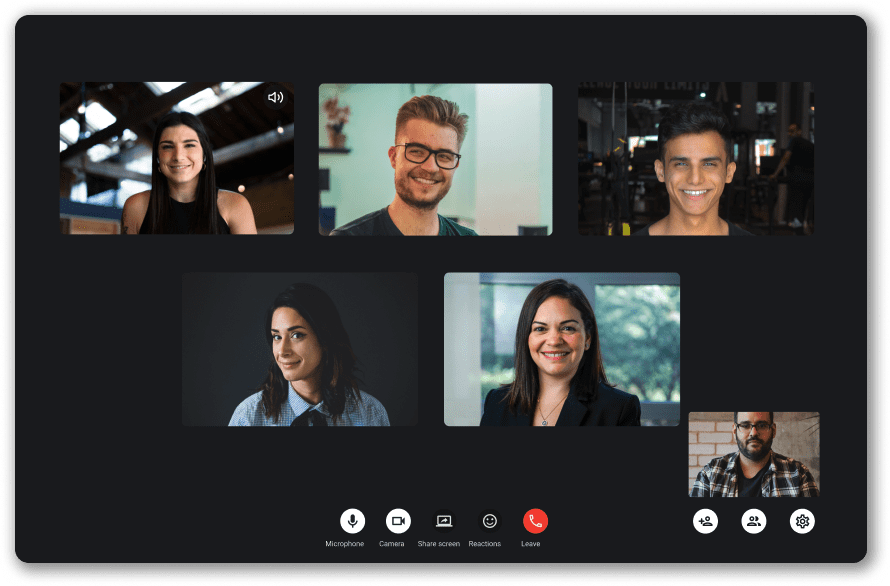
Make a great interview experience for candidates with Pumble
For most candidates, a job interview is an overwhelmingly stressful experience.
However, in addition to conducting a job interview effectively, good recruiters know how to put candidates at ease and level up their experience during the interview process.
As video conferencing software with a guest access option, Pumble can help you make the hiring process effective and create a great candidate experience with:
- High audio and video quality,
- Ease of joining a video call, and
- Screen-sharing functionality.
What’s more, you can take advantage of the meeting recording option to identify areas for improvement.
Want to elevate your job interviews for both you and your candidates?

